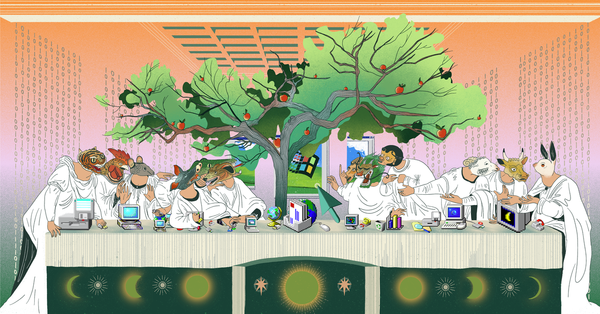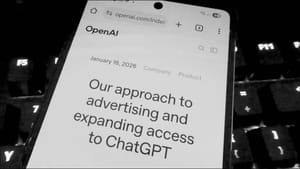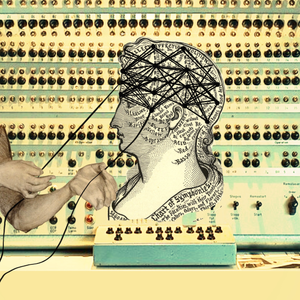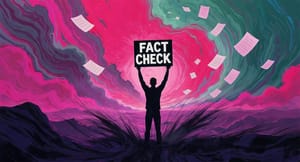When we talk about artificial intelligence, we often focus on data, power, and innovation. The loudest voices tend to come from tech companies, policymakers, or academic institutions. But in a conversation that increasingly needs moral grounding, one of the most compelling contributions is coming from a place not typically associated with digital innovation – The Vatican.
A new episode of the For Immediate Release podcast, published yesterday, features an interview with Monsignor Paul Tighe, a senior official at the Vatican’s Dicastery for Culture and Education. The conversation, which I co-hosted alongside Shel Holtz, and guest co-host Silvia Cambié, explores AI ethics, human dignity, and a phrase that resonates deeply in our times: the wisdom of the heart.
Rather than summarise the 42-minute interview – which you can listen to in full below and on the FIR website – I want to reflect on why this perspective matters and why I believe voices like Monsignor Tighe’s deserve a central place in the global dialogue about AI.
A Moral Compass in an Algorithmically-Driven World
We are living through a moment of enormous technological acceleration, not of machines in the traditional sense, but of the algorithms and models that increasingly shape how we work, communicate, and make decisions. The pace of AI development often outstrips our ability to reflect. The questions we face are no longer just technical – they’re profoundly ethical.
Just yesterday, Pope Leo addressed this challenge directly in Rome, speaking at the Vatican’s first Mass for Catholic social media influencers during the Jubilee of Youth. He reminded his audience that "nothing that comes from man and his creativity should be used to undermine the dignity of others." He emphasised that technology must serve "the benefit of all humanity" and called for a renewed commitment to "develop a way of thinking... a language of our time, that gives voice to love."
This builds on a consistent thread in Vatican thinking. In his message for the 2024 World Day of Peace, Pope Francis made this point clear, saying, “The unique dignity of the human person must remain at the centre of our reflection and action.”
Monsignor Tighe played a central role in producing Antiqua et Nova, the Vatican’s note on artificial intelligence and human intelligence, published in January 2025. It's a remarkable document that offers both ethical guidance and philosophical reflection at a time when the conversation about AI is intensifying globally.
Our interview focused on the core themes of that document: what makes human intelligence unique, the moral responsibilities of those designing and deploying AI, and the broader societal impact of this technology on work, justice, and connection.
A Different Kind of Conversation
What struck me most during our conversation with Monsignor Tighe was how grounded it was in the real-world implications of AI, especially for those who are most vulnerable. This wasn’t abstract moral theorising. It was a thoughtful, pragmatic reflection on how to ensure AI serves society – not the other way around.
He spoke about the importance of education, transparency, and inclusive dialogue. He made it clear that the Church is not trying to impose doctrine but to contribute to a shared ethical framework that transcends borders, cultures, and belief systems.
Silvia, Shel and I came into this interview knowing that communicators have a key role to play in shaping the narrative around AI. But what Monsignor Tighe reminded us is that it’s not just about what we say – it’s about why we speak at all. Are we elevating the right voices? Are we amplifying messages that serve the common good?
More Than Technology – A Call to Responsibility
There is no shortage of initiatives around AI ethics, from corporate principles to government policy. But many of these efforts remain reactive, self-serving, or limited in scope. The Vatican’s contributions – including the Rome Call for AI Ethics – attempt to offer a broader vision: one that places responsibility and care at the centre.
That vision is especially relevant for communicators. We are the ones translating technological shifts into public understanding. We help shape how organisations talk about their use of AI, how they justify it, and how they align it with their values.
In that context, the Vatican’s voice is not peripheral – it is clarifying. It calls on us to consider not just what is possible, but what is right.
The Wisdom of the Heart
One phrase that stayed with me from our conversation with Monsignor Tighe – and from the Vatican’s 2025 note on AI, Antiqua et Nova – is “the wisdom of the heart.” It’s a gentle but profound reminder that not all discernment comes from logic, data, or even formal ethics. Some of it comes from our shared sense of humanity – our emotional intelligence, lived experience, and moral intuition.
The phrase appears in Antiqua et Nova as part of its final reflections:
“We must not lose sight of the wisdom of the heart, which reminds us that each person is a unique being of infinite value and that the future must be shaped with and for people.”
– Antiqua et Nova, §16
But this isn’t just a poetic flourish. It’s a framing that runs through the document:
- In sections discussing discernment, the note warns against viewing AI as a neutral tool and encourages critical reflection shaped by empathy and awareness.
- In passages on human dignity, it argues that wisdom cannot be reduced to data — that ethical judgment comes from human experience, not machine reasoning.
- And in its call for inclusive global dialogue, it insists that ethical governance must not be left to technical elites, but rooted in the shared values of people across traditions and cultures.
Monsignor Tighe expanded on this in our interview, describing the wisdom of the heart as the antidote to blind faith in technology – a way to reconnect with the deeper purpose behind our innovations. In his words, it means asking not just what’s possible, but what matters.
An Invitation to Reflect
I hope you’ll listen to the FIR interview and share it with colleagues who are grappling with the ethical dimensions of AI. But more than that, I hope it prompts deeper reflection.
Whose voices are you listening to in your own AI conversations? Are they asking the hard questions? Are they speaking not just for markets or industries, but for humanity?
The Vatican’s voice may not be the loudest in the AI debate. But it may be the one reminding us most clearly of what’s at stake – not through regulation or rhetoric, but through what Antiqua et Nova calls “the wisdom of the heart.”
In a world of algorithms and automation, what does it mean to remain human?
That’s a question worth asking – and listening for answers from places we might not expect.
Ultimately, this interview reminded me of the value of humility and reflection in a world that prizes speed and scale. It's a perspective I’ll carry forward in my own thinking – and I hope others will too.
🎧 Listen to the full interview with Monsignor Paul Tighe below. You can also read the full transcript or watch the video version on the FIR website.
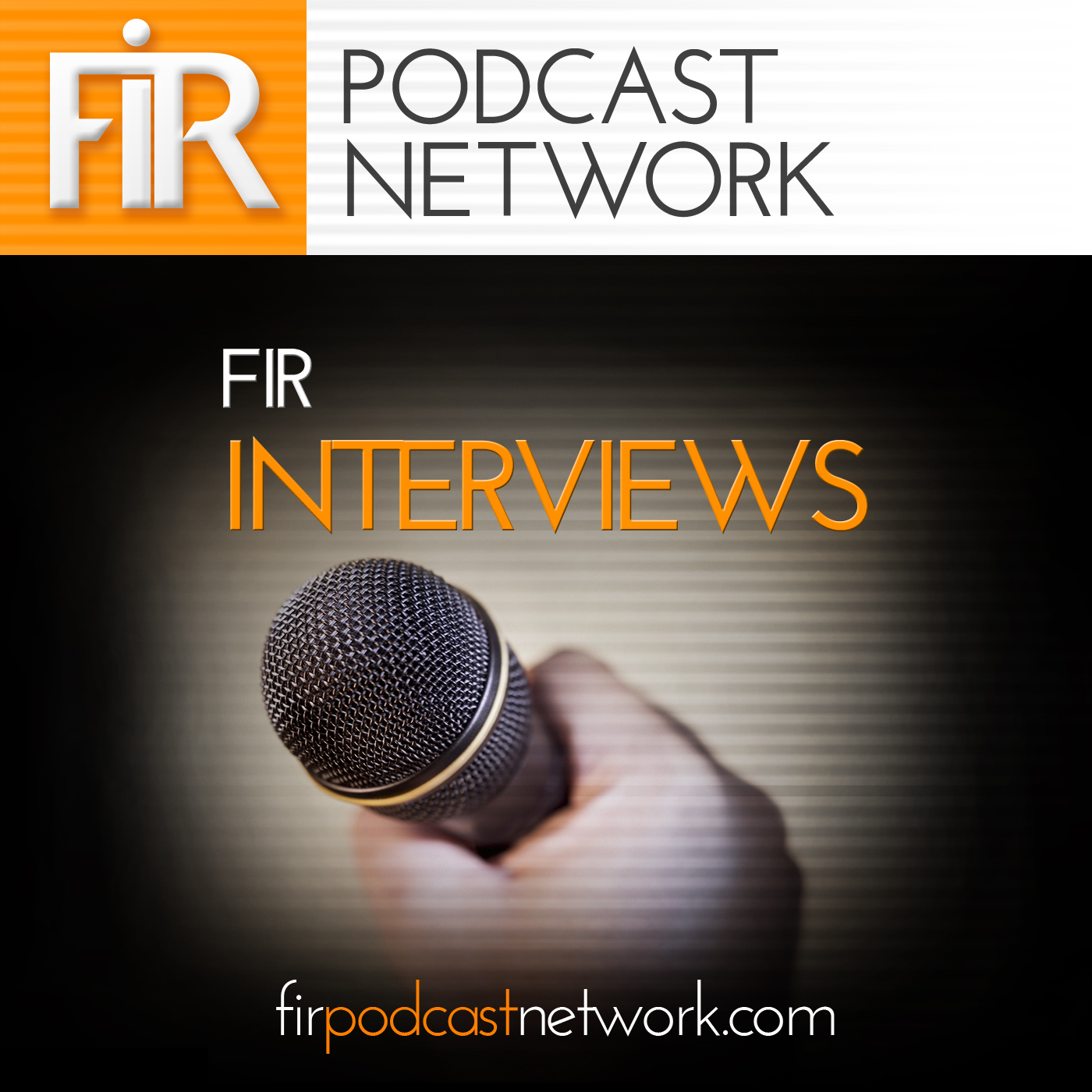
Related Reading:
- Pope Leo Takes on AI: Communicators Should Pay Attention (19 June 2025)
- The New Pope and Social Media: A Contemporary Step Forward (14 May 2025)


